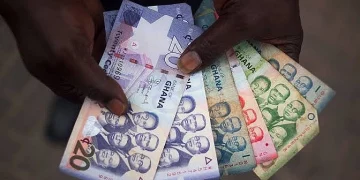World Bank Says Ghana Has Spent 40 of 68 Years Under IMF Programmes
Ghana has spent nearly six decades of its post-independence history under the tutelage of the International Monetary Fund (IMF), with 40 of its 68 years tied to 17 separate IMF programmes, according to the World Bank’s 2025 Policy Notes titled “Transforming Ghana in a Generation”.
The report warned that without bold reforms, Ghana risks growth stagnating at around 3.8 percent, delaying its aspiration of achieving upper-middle-income status until beyond 2050.
“Governance challenges continue to obstruct policy reforms and structural transformation, with persistent fiscal indiscipline, inefficiencies, and mismanagement eroding trust,” the report noted.
The Bank stressed that Ghana’s heavy reliance on natural resources has curtailed structural transformation and productivity gains. It cautioned that the country faces significant risks if reforms stall, including insufficient quality job creation, rising poverty, widening regional disparities, fiscal fragility, and environmental degradation.
“The real risk is complacency and business-as-usual,” the World Bank said, adding that the upcoming four years present a unique opportunity for Ghana to reset its economic trajectory and rebuild the social contract, particularly in the context of election cycles.
The report underscored that Ghana’s 2022 economic crisis was not only the result of external shocks but also a reflection of deep-seated structural weaknesses.
While Ghana recorded remarkable progress in the early 2000s, this momentum was followed by what the Bank described as a “lost decade,” culminating in the 2022 macroeconomic collapse.
Currently, Ghana’s income per capita stands at about US$2,200, a figure that has largely stagnated for over a decade.








